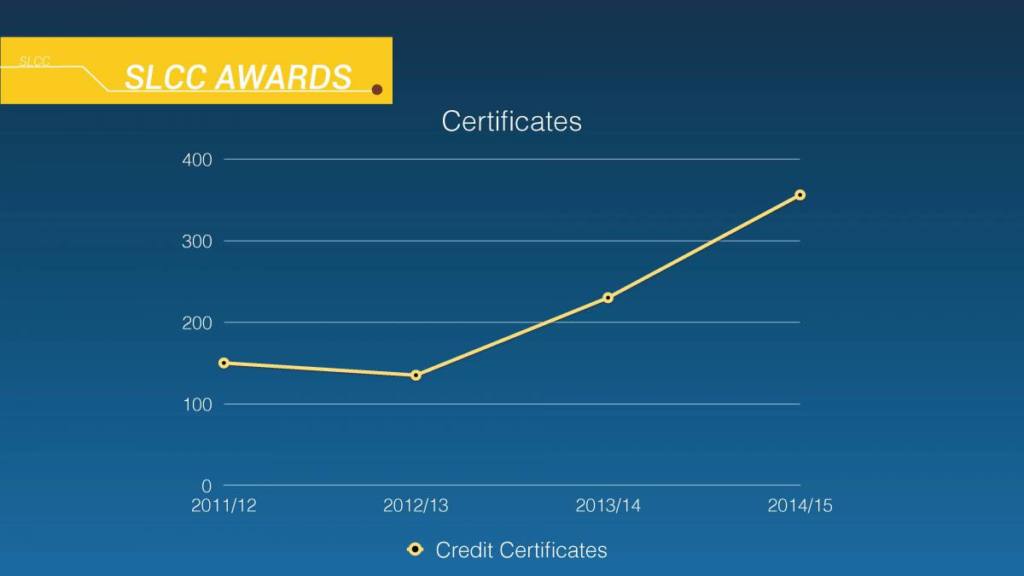Career and Technical Education (CTE) consists of technical training and education in shorter intervals–from less than one year to two years–and prepares students for specific skills needed to enter the workforce. Institutions within the Utah System of Higher Education provide 73.4% of all post secondary CTE in Utah. By providing over 70 percent of CTE in Utah, the Utah System of Higher Education (USHE) plays a critical role in bringing CTE to all regions of the state. USHE works closely with business and industry leaders to develop and deliver relevant programs specifically tailored to local workforce development needs.
Salt Lake Community College (SLCC) provides the largest share of CTE in the state, at 27.4%. The Utah College of Applied Technology provides 26.4%, followed by Utah Valley University at 16% and Weber State University at 13.5%.
% Career and Technical Education (FTE) by Institution (2014-15)
Types of CTE Credentials
Associate of Applied Science Degree (AAS)
- Typically two years in length
- 63-69 credit hours
- Examples: Accounting, Occupational Therapy Assistant
Certificates of Completion – for credit
- Typically one year in length
- 30-33 credit hours, or 900-990 clock hours
- Examples: Surgical Tech, Non-Destructive Testing, Welding
Certificates of Proficiency – for credit
- Typically less than one year in length
- 16-29 credit hours, or 600-899 clock hours
- Examples: Mobile App Development, Health Information Specialist, Computer Systems Information Specialist
Certificates of Achievement – non-credit
- Designed to meet immediate workforce training needs
- 210-463 clock hours
- Examples: Certified Nursing Assistant (CNA), Professional Truck Driving
A Closer Look at SLCC, the Largest Provider of CTE in Utah
SLCC offers 29 non-credit CTE certificate programs and 106 CTE for credit certificate programs. They also offer 32 CTE Associate of Applied Science (AAS) degrees. In general, students who are enrolled in non-credit certificate programs are older than those enrolled in credit-bearing CTE certificate and degree programs (35 years old vs. 27 years old, on average). SLCC has dramatically increased the number of credit certificates it has awarded in the past four years:
SLCC works closely with business and industry leaders to develop and deliver relevant programs specifically tailored to local workforce development needs. One recent example is the Utah Aerospace Pathway (UAP), which supports Utah’s aerospace industry. Students participating in this pathway are given a paid internship with local employers, and will graduate with an Aerospace Manufacturing Certificate. Another example is the Diesel Tech Pathway, in which students take Diesel Technology in high school, then continue at SLCC to complete a CTE certificate or degree. Corporate partners provide internships for students participating in this program, giving them real-world experience.


